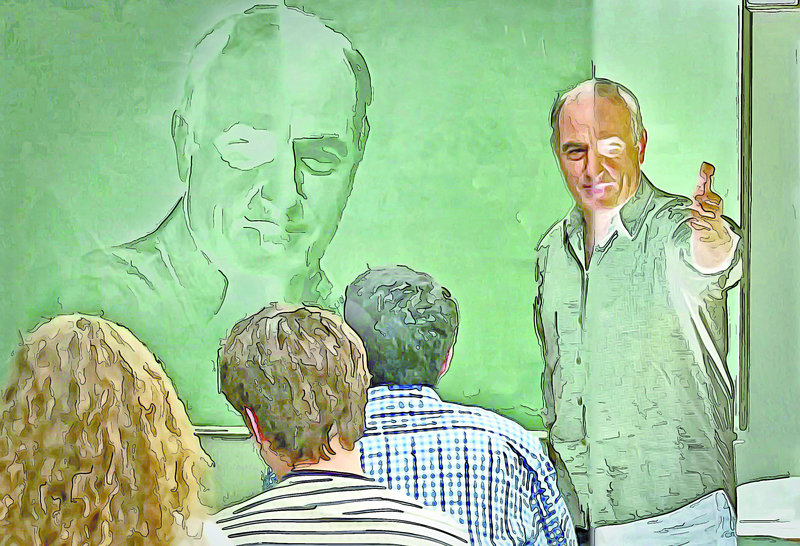Long-term resident
Matthew tree
The magic touch
Most people don't like Mondays. One US health site, Prevention.com, even has a section called '12 Ways To Hate Mondays Less' which is full of cute tips like 'check out a yoga class' or 'start your day with a romp in the hay' (sic). In Catalonia, for thirteen glorious weeks ending last December, our Mondays were made less hateful by 'Merlí', a thankfully uncute comedy-drama series broadcast by Catalan Public Television (TV3). With over half a million viewers, 'Merlí' became one of TV3's most successful series ever, thanks to believable acting, imaginative directing and the carefully structured, twist-laden scripts of the series' creator, Héctor Lozano. At first sight, 'Merlí' seemed to be a Catalan take on the film 'The Dead Poets' Club': the eponymous hero is a philosophy teacher at a Barcelona state school whose unorthodox methods (and penchant for obscene language) delight and stimulate his students even as they infuriate the more traditional teachers and parents. As the series unfolded, however, it turned out to be far more complex, dealing as it did with a wide range of themes of interest to just about everybody: homosexuality, sexism, sex in general, mental illness, hopelessly authoritarian parents, and so on. Merlí, perfectly played by the New York trained actor Francesc Orella, goes out of his way to help certain of his more confused and unhappy pupils, but far from coming over as a lay saint, we gradually discover that he has an unpleasantly arrogant streak in him, and that he also cheats unthinkingly on his lovers (of which there have been three so far: one teacher and two mums). At the same time, the philosophers whose names supply the titles of the different episodes subtly qualify each one's plotline (for example, when Foucault's name comes up, the various story threads all end up dealing with the question of what it means – if anything - to be 'normal'). That said, I suspect 'Merlí''s success – like that of so many other good TV series – is partly due to its therapeutic qualities. Lozano said in a recent interview that this was the series he would have liked to have seen when he was sixteen, as it would have helped him accept his homosexuality (one of the main characters, Merlí's son, is a gay who desperately needs to step out of the closet). I wouldn't have minded seeing it when I was sixteen myself, given that back then I shared certain traits with the mentally ill character in the series, the only difference being that he knows he's mentally ill and I didn't. Watching 'Merlí' would have emboldened me to seek treatment instead of bottling everything up right through adolescence. When I can look at the character in question, I recall that distant shadow of my teenage self and can now at least laugh about it. Not too heartily, mind.


